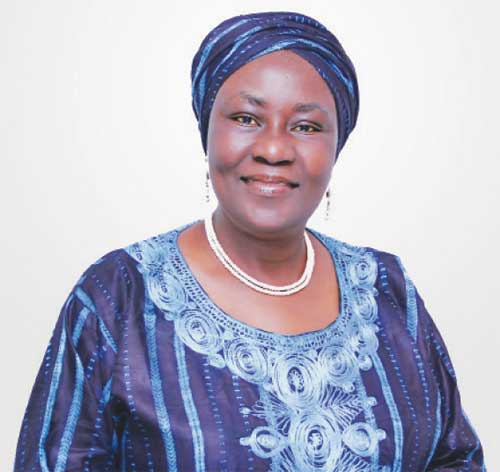By Prof Remi Sonaiya
“THINK” was the motto brought to IBM (formerly known as Computing Tabulating Recording Company) by Thomas Watson when he joined the firm in 1914. Its origin, however, dates back to three years earlier when Watson had said the following words at a staff meeting of the National Cash Register Company where he worked at the time: “The trouble with everyone of us is that we don’t think enough. We don’t get paid for working with our feet – we get paid for working with our heads.” He then went on to write the word THINK on the easel. THINK became IBM’s trademark, influencing the naming of the company’s laptops as “ThinkPads”.
Relating the foregoing to the Nigerian experience, one wonders what Mr. Watson would have said about us and our circumstances. Do we not possess just about everything that is needed to ensure that we live in probably the most comfortable environment on the face of the earth? Instead, our refusal – or inability? – to think condemns us to the very last rungs of the global ladder in terms of practically all indices of development. In my book, “Daybreak Nigeria: This Nation Must Rise” (2014, Prestige Publishing) I refer to a terrible joke about Africans’ non-use of their minds, and I wish to repeat it here:
There is this very bad and very sad joke about some human brains on display, preserved in jars, like they are sometimes found in laboratories or museums of natural history. A man comes along and is asked to make a choice among the brains. He looks at the labels carefully: there is Einstein’s brain and those of several other highly intelligent and distinguished individuals; he sees a Chinese brain, a Russian brain, and brains from several other places – North America, Europe, Thailand, Peru, and so on. Then he stops before a particular jar: the brain appears to be in pristine condition. “I’ll go for this one”, he says, “it’s never been used.” It’s an African brain.
Now, this joke is totally unfounded in scientific terms, for there is no basis to believe that the African brain is different from any other; but isn’t that part of the power of jokes – to draw attention to a particular issue through exaggeration and caricature? The sad reality is that a lot happens around us which forces one to ask whether we truly have the capacity to think, for it is through thinking that other human beings like us are able to recognise certain situations around them as undesirable and to determine what they have to do in order to construct for themselves the kind of environment in which they wish to live.
Lack of thought is affecting us in very dramatic ways, causing us to sit out our lives in mindless traffic jams, losing precious time and possibly never-to-return opportunities. An example is the ongoing reconstruction of the Lagos-Ibadan Expressway. Although it had been planned to begin as far back as 1999, endemic corruption ensured that it could only take off in 2013. Now, one would have thought that the 14-year delay would mean that the project would have been so thoroughly reviewed and fine-tuned that when it finally started it would run very smoothly, causing the least discomfort to the public. No way! Very basic issues which should have preoccupied the minds of the planners were apparently not taken into consideration; for example, creating alternative routes between Lagos and Ibadan and ensuring that they were in good condition so that some traffic could be diverted from the construction site. With the narrowing of the lanes, trailers and tankers could have been diverted to those alternative routes so that they do not cause impossible gridlocks when they break down. People have wasted hours in such gridlocks.
To think is to actively engage the mind on a particular issue such that, for example, its different dimensions could be critically examined, its positive and negative (acceptable and unacceptable) aspects identified, and a new state of affairs conjured up and vigorously pursued. Thinking is what enables people to dream – of new possibilities, of a new world. It is what Martin Luther King, Lee Kuan Yew, Nelson Mandela and Barack Obama (men in whose ranks our presidents often wish to be numbered) have in common. The intellectual leaders of Africa have also been accused of being unable to dream. A friend once sent me a text written by a US-based Zambian media practitioner, Field Ruwe, in which he narrated an interesting – and humiliating! – encounter he had with a certain Walter, an American who sat beside him on a flight he once took between Los Angeles and Boston. The text’s title, reflecting Walter’s scathing analysis of Africans and their terrible condition, was: “You lazy (intellectual) African scum!” Here is the charge brought against us:
“You my friend flying with me and all your kind are lazy,” he said. “When you rest your head on the pillow you don’t dream big. You and other so-called African intellectuals are damn lazy, each one of you. It is you, and not those poor starving people, who is the reason Africa is in such a deplorable state.”
Could it be really true that we are too lazy to think? Is this due to a failure of our educational system? How can we immediately set about remedying the situation? We must think and imagine a different world for ourselves, and then set about making it our reality.













